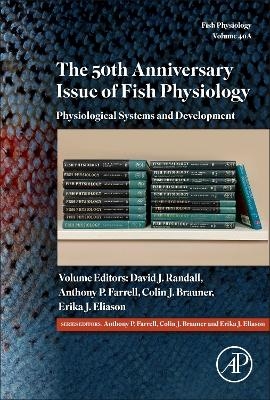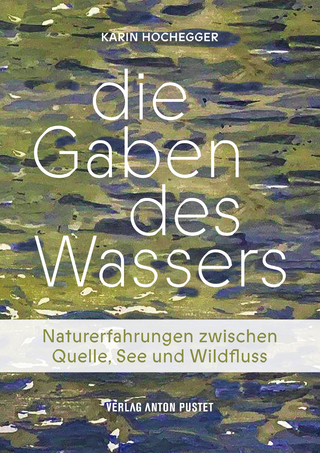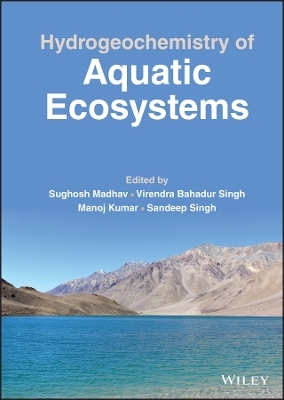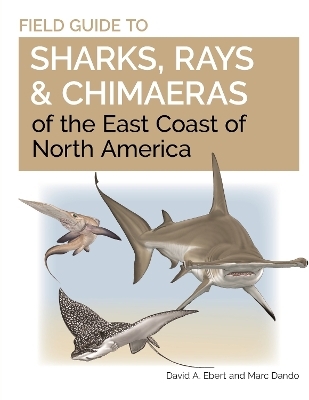
The 50th Anniversary Issue of Fish Physiology
Academic Press Inc (Verlag)
978-0-443-13733-4 (ISBN)
Dr. Tony Farrell is a Professor Emeritus in the Department of Zoology & Faculty of Land and Food Systems at the University of British Columbia and a Fellow of the Royal Society of Canada. His research had provided an understanding of fish cardiorespiratory systems and has applied this knowledge to salmon migratory passage, fish stress handling and their recovery, sustainable aquaculture and aquatic toxicology. He has over 490 research publications in peer-reviewed scientific journals and an h-factor of 92. He has co-edited of 30 volumes of the Fish Physiology series, as well as an award-winning Encyclopedia of Fish Physiology. As part of his application of physiology to aquaculture, he has studied the sub-lethal impacts of sea lice and piscine orthoreovirus on the physiology of juvenile salmon. Dr. Farrell has received multiple awards, including the Fry Medal, which is the highest honour to a scientist from the Canadian Society of Zoologists, the Beverton Medal, which is the highest honour to a scientist from the Fisheries Society of the British Isles, the Award of Excellence, which is the highest honour of the American Fisheries Society and the Murray A. Newman Awards both for Research and for Conservation from the Vancouver Marine Sciences Centre. He is a former President of the Society of Experimental Biologists and a former Editor-in-Chief for the Journal of Fish Biology. He served as a member of the Minister’s Aquaculture Advisory Committee on Finfish Aquaculture for British Columbia and was a member of the Federal Independent Expert Panel on Aquaculture Science. Dr. Colin Brauner was educated in Canada at the University of British Columbia (Ph D), followed by a Post-doctoral fellowship at Aarhus University and the University of Southern Denmark, and was a Research Associate at McMaster University. He is a Professor of Zoology, UBC and Director of the UBC Aquatics Facility. He has been a Co-Editor of the Fish Physiology series since 2006. His research investigates environmental adaptations (both mechanistic and evolutionary) in relation to gas-exchange, acid-base balance and ion regulation in fish, integrating responses from the molecular, cellular and organismal level. The ultimate goal is to understand how evolutionary pressures have shaped physiological systems among vertebrates and to determine the degree to which physiological systems can adapt/acclimate to natural and anthropogenic environmental changes. This information is crucial for basic biology and understanding the diversity of biological systems, but much of his research conducted to date can also be applied to issues of aquaculture, toxicology and water quality criteria development, as well as fisheries management. His achievements have been recognized by the Society for Experimental Biology, UK (President’s medal) and the Canadian Conference for Fisheries Research (J.C. Stevenson Memorial Lecturer) and the Vancouver Marine Sciences Centre (Murray A. Newman Award for Aquatic Research). He is a former President of the Canadian Society of Zoologists. Dr. David Randall is a Professor Emeritus in the Department of Zoology at the University of British Columbia and a Fellow of the Royal Society of Canada. His research was focused on the transfer of oxygen, carbon dioxide and ammonia in aquatic systems, especially fish. He was the first to measure these gases and pH in the blood of living aquatic animals and his work has contributed much to our general understanding of the regulation of these gases and pH across the gills of fish. He collaborated with the US Environmental Protection Agency (EPA) in studies of ammonia toxicity leading to environmental regulation and helped write the World health Organization report on Ammonia. He was the co-founder of the series “Fish Physiology with William H. Hoar, and together they Co-Edited the first 12 volumes in the series. He was a Co-Author of the text book “Eckert Animal Physiology: Mechanism and Adaptations which has been translated into six different languages and was the bestselling book in its category world-wide. He has been awarded the Fry Medal of the Canadian Society of Zoologists, the Award of Excellence from the American Fisheries Society, Murray Newman Award for excellence in Fisheries Research and was elected to the Brazilian Academy of Sciences. Dr. Erika Eliason is an Associate Professor at the University of California, Santa Barbara. She received her BSc from Simon Fraser University, MSc and PhD from the University of British Columbia, and held an NSERC postdoctoral fellowship at the University of Sydney and Carleton University. As an ecological physiologist, Dr. Eliason uses a combination of field and lab-based studies to investigate how fish cope with anthropogenic stressors (e.g. temperature, fisheries interactions). Much of her research focuses on how climate change affects physiological performance across populations, age, body size, and sex in marine and freshwater fishes. Tackling both basic and applied questions, Dr. Eliason’s research is informing conservation policy and enhancing the management of natural resources. Dr. Eliason has served on the editorial board for ICES Journal of Marine Science, Journal of Fish Biology and Canadian Journal of Fisheries and Aquatic Sciences. Dr. Eliason has been a Co-Editor of the Fish Physiology series since 2020. She was awarded the Cameron Award for the Best PhD Thesis in Zoology in Canada from the Canadian Society of Zoologists, the Boutilier New Investigator Award from the Canadian Society of Zoologists, President’s Medal from the Society for Experimental Biology, and was a Hellman Fellow at UC Santa Barbara.
1. Overview of Hughes, 1984 (Vol 10A)
2. General Anatomy of the Gills
3. Overview of Farrell and Jones, 1992 (Vol 12A)
4. The Heart
5. Overview of Johansen, 1970 (Vol 4)
6. Air Breathing in Fishes
7. Overview of Holmes and Donaldson, 1969 (Vol 1)
8. The Body Compartments and the Distribution of Electrolytes
9. Overview of Albers, 1970 (Vol 4)
10. Acid-Base Balance
11. Overview of Yamamoto, 1969 (Vol 3)
12. Sex Differentiation
13. Overview of Blaxter, 1969 (Vol 3)
14. Development: Eggs and Larvae
15. Overview of Rombough, 1988 (Vol 11A)
16. Respiratory Gas Exchange, Aerobic Metabolism, and Effects of Hypoxia during Early Life
17. Overview of Bennett, 1971 (Vol 5)
18. Electric Organs
| Erscheinungsdatum | 03.10.2023 |
|---|---|
| Reihe/Serie | Fish Physiology |
| Verlagsort | San Diego |
| Sprache | englisch |
| Maße | 152 x 229 mm |
| Gewicht | 1450 g |
| Themenwelt | Naturwissenschaften ► Biologie ► Limnologie / Meeresbiologie |
| Naturwissenschaften ► Biologie ► Zoologie | |
| ISBN-10 | 0-443-13733-1 / 0443137331 |
| ISBN-13 | 978-0-443-13733-4 / 9780443137334 |
| Zustand | Neuware |
| Informationen gemäß Produktsicherheitsverordnung (GPSR) | |
| Haben Sie eine Frage zum Produkt? |
aus dem Bereich


